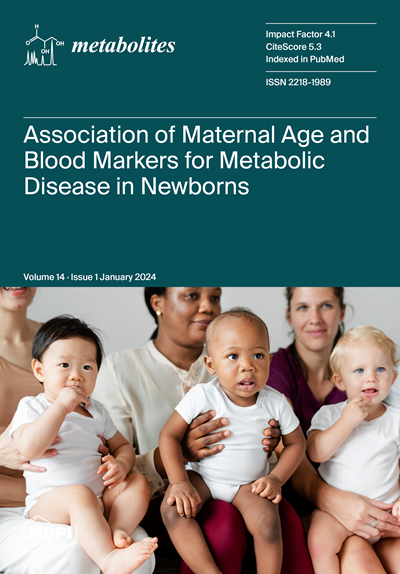The Association between Maternal Endocrine-Disrupting Chemical Exposure during Pregnancy and the Incidence of Male Urogenital Defects: A Systematic Review and Meta-Analysis
IF 3.4
3区 生物学
Q2 BIOCHEMISTRY & MOLECULAR BIOLOGY
引用次数: 0
Abstract
The increasing incidence of hypospadias and cryptorchidism, coupled with the widespread presence of endocrine-disrupting chemicals (EDCs), has raised concerns about the potential impact of these environmental factors on male urogenital development. This systematic review and meta-analysis aims to evaluate the association between maternal exposure to various EDCs and the risk of hypospadias and cryptorchidism. We conducted a comprehensive search of PubMed, Scopus, Web of Science, and Cochrane databases from inception until May 2024. We included case-control and cohort studies that examined the association between maternal EDC exposure and hypospadias or cryptorchidism, reporting adjusted odds ratios (aOR) or crude odds ratios (cOR). Data were extracted and pooled using a random effects model, and heterogeneity was assessed using the Q test and I-square statistics. The risk of bias was evaluated using the Newcastle–Ottawa Scale (NOS). A total of 48 studies were included in the systematic review, with 46 studies included in the meta-analysis. The pooled analysis revealed a significant association between maternal EDC exposure and an increased risk of hypospadias (aOR = 1.26, 95% CI: 1.18–1.35, p < 0.0001) and cryptorchidism (aOR = 1.37, 95% CI: 1.19–1.57, p < 0.001). Subgroup analyses showed that exposure to pesticides, phthalates, alkyl phenolic compounds (ALKs), and heavy metals significantly increased the risk of hypospadias. In contrast, polychlorinated biphenyls (PCBs) did not show a significant association. Significant associations were found with pesticide and PCB exposure for cryptorchidism, but not with phthalate, ALK, or heavy metal exposure. Maternal exposure to certain EDCs is associated with an increased risk of hypospadias and cryptorchidism in male children. These findings underscore the importance of addressing environmental and occupational exposures during pregnancy to mitigate potential risks. Further research is needed to elucidate the mechanisms by which EDCs affect urogenital development and to develop effective interventions to reduce exposure among vulnerable populations.孕期母体内分泌干扰化学物暴露与男性泌尿生殖系统缺陷发病率之间的关系:系统回顾与元分析
尿道下裂和隐睾症的发病率不断上升,再加上干扰内分泌的化学品(EDCs)的广泛存在,引起了人们对这些环境因素对男性泌尿生殖系统发育的潜在影响的关注。本系统综述和荟萃分析旨在评估母体暴露于各种 EDCs 与尿道下裂和隐睾症风险之间的关联。我们对 PubMed、Scopus、Web of Science 和 Cochrane 数据库进行了全面检索,检索时间从开始到 2024 年 5 月。我们纳入了研究母体暴露于 EDC 与尿道下裂或隐睾症之间关系的病例对照和队列研究,并报告了调整后的几率比(aOR)或粗略几率比(cOR)。采用随机效应模型提取和汇总数据,并使用 Q 检验和 I 方统计量评估异质性。偏倚风险采用纽卡斯尔-渥太华量表(NOS)进行评估。共有 48 项研究被纳入系统综述,46 项研究被纳入荟萃分析。汇总分析显示,母体接触 EDC 与尿道下裂(aOR = 1.26,95% CI:1.18-1.35,p < 0.0001)和隐睾(aOR = 1.37,95% CI:1.19-1.57,p < 0.001)风险增加之间存在显著关联。分组分析表明,接触杀虫剂、邻苯二甲酸盐、烷基酚化合物(ALKs)和重金属会显著增加尿道下裂的风险。与此相反,多氯联苯(PCBs)并未显示出明显的关联性。研究发现,隐睾症与农药和多氯联苯暴露有显著关联,但与邻苯二甲酸盐、ALK 或重金属暴露无显著关联。母亲暴露于某些 EDC 与男性尿道下裂和隐睾症的风险增加有关。这些发现强调了解决孕期环境和职业暴露问题以降低潜在风险的重要性。还需要进一步研究,以阐明 EDC 影响泌尿生殖系统发育的机制,并制定有效的干预措施,减少易感人群的接触。
本文章由计算机程序翻译,如有差异,请以英文原文为准。
求助全文
约1分钟内获得全文
求助全文
来源期刊

Metabolites
Biochemistry, Genetics and Molecular Biology-Molecular Biology
CiteScore
5.70
自引率
7.30%
发文量
1070
审稿时长
17.17 days
期刊介绍:
Metabolites (ISSN 2218-1989) is an international, peer-reviewed open access journal of metabolism and metabolomics. Metabolites publishes original research articles and review articles in all molecular aspects of metabolism relevant to the fields of metabolomics, metabolic biochemistry, computational and systems biology, biotechnology and medicine, with a particular focus on the biological roles of metabolites and small molecule biomarkers. Metabolites encourages scientists to publish their experimental and theoretical results in as much detail as possible. Therefore, there is no restriction on article length. Sufficient experimental details must be provided to enable the results to be accurately reproduced. Electronic material representing additional figures, materials and methods explanation, or supporting results and evidence can be submitted with the main manuscript as supplementary material.
 求助内容:
求助内容: 应助结果提醒方式:
应助结果提醒方式:


